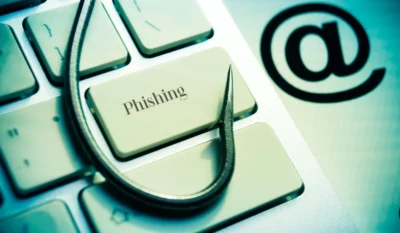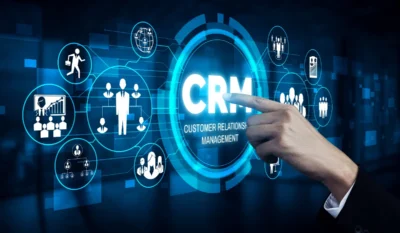Key Takeaways
- Cyber threats are growing for nonprofits as limited budgets and sensitive data make them easy targets for attackers.
- Regular security checks and quick response plans help nonprofits avoid shutdowns from ransomware and other cyber risks.
- Trusted IT partners can handle key protections like MFA, updates, encryption, and monitoring so nonprofits stay safe.
- Staff training and strong device security help protect donor data and keep nonprofits focused on their mission.
Did you know that email-based threats targeting nonprofits have surged by 35.2% over the past year, as cybercriminals expand their focus beyond large corporations?
With limited budgets, reliance on digital communication, and access to sensitive data like donor information, your organization could be at risk for ransomware attacks, phishing scams, and data breaches.
If you rely on digital tools for fundraising, stakeholder engagement, or day-to-day operations, now is the time to adopt a proactive cybersecurity strategy.
Below are some of the cybersecurity best practices your nonprofit can use to protect against today’s growing threats.
1. Conduct Regular Cybersecurity Assessments
If your nonprofit handles sensitive information — from donor data to financial records — staying ahead of cyber threats is critical. Yet with limited IT resources, you may not always see the risks lurking beneath the surface.
Without regular cybersecurity assessments, hidden vulnerabilities in your systems, networks, and policies can leave you exposed to attacks like malware, phishing, and ransomware.
By identifying and addressing weaknesses before they’re exploited, you can prevent costly disruptions and keep your services running. That’s where regular, expert-led assessments make a difference.
How an MSP Can Help
A managed service provider (MSP) can deliver in-depth cybersecurity assessments tailored to your nonprofit’s needs.
These go beyond technical reports — you’ll get actionable insights to help you close security gaps, protect your donor information, and stay focused on your mission.
Some providers even offer special support for nonprofit sectors, such as free AI-powered protection for budget-conscious organizations.
2. Implement Multi-Factor Authentication (MFA)
Multi-factor authentication is no longer optional — it’s a must-have for nonprofits looking to prevent unauthorized access to sensitive systems.
Whether you’re protecting Microsoft 365, donor management software, or cloud-based file-sharing tools, MFA adds a critical layer of security by requiring users to verify their identity in more than one way.
The risks of outsourcing IT support are real. In 2021, the Cybersecurity and Infrastructure Security Agency (CISA) released guidance urging organizations, including nonprofits, to implement protections like MFA to reduce third-party cybersecurity risks.
These measures help ensure your data stays secure, even when accessed by external vendors or remote teams.
How an MSP Can Help
An MSP simplifies MFA deployment by tailoring security solutions to your nonprofit’s specific systems and workflows. From protecting your Microsoft accounts to securing donor databases, an MSP ensures your MFA setup is not only effective but user-friendly.
And with limited in-house IT staff, working with a trusted MSP means you won’t have to divert resources away from your core mission — they’ll handle setup, maintenance, and ongoing monitoring.
3. Prioritize User Security Training & Cybersecurity Awareness
Cybercriminals often exploit human behavior, and the data backs it up.
According to the 2020 Verizon Data Breach Investigations Report, 67% of breaches stemmed from credential theft, user errors, or social attacks.
For nonprofits, where staff members and volunteers may not have formal IT training, investing in cybersecurity awareness is one of the smartest moves you can make.
By training your team to recognize phishing emails, social engineering attempts, and other scams, you reduce human error and drastically lower your risk of a breach.
Cybersecurity awareness empowers your staff to protect sensitive donor data and maintain your organization’s reputation.
How an MSP Can Help
An MSP can help you build a culture of security awareness through interactive webinars, real-world phishing simulations, and engaging training sessions. These tools keep your staff alert, informed, and motivated to act as a first line of defense.
With expert coaching and gamified learning, your team won’t just learn about cybersecurity — they’ll actively contribute to safeguarding your nonprofit from cybercrime.
4. Ransomware Monitoring & Incident Response
Ransomware attacks can stop your nonprofit in its tracks, locking critical files and demanding payment for their release. Without a well-prepared incident response plan, recovery can be slow, expensive, and damaging to your operations and reputation.
In May of 2024, there was a ransomware attack on Ascension, the largest nonprofit Catholic health system in the U.S. The breach, executed by the Black Basta group, disrupted clinical operations, delayed procedures, and diverted ambulances — all because of a single cyber event.
To avoid similar scenarios, your organization needs continuous monitoring and a swift, effective recovery plan in place.
How an MSP Can Help
An MSP delivers 24/7 monitoring to detect ransomware and other threats before they escalate. If suspicious activity is found, the MSP acts fast to isolate the threat, notify your team, and initiate a structured incident response.
This rapid action limits downtime and helps you keep serving your community — even in the face of an attack.
5. Manage Regular Patch Updates
Keeping software and systems updated can be a challenge, especially when your nonprofit juggles limited resources and a lean IT team.
But outdated software is a prime target for cybercriminals exploiting known vulnerabilities. Regular patch management is essential for staying secure and avoiding costly breaches.
In October 2023, the British Library suffered a cyberattack that destroyed servers and stole 600GB of data, with recovery costs estimated at £7 million. The cause? Poor patch management and outdated systems.
How an MSP Can Help
An MSP automates patch updates for your core systems and third-party apps, including Microsoft tools, so you don’t have to.
This proactive service helps close security gaps, prevent data loss, and avoid operational downtime — all while freeing your staff to focus on what matters: advancing your mission and serving your community.
6. Implement Data Encryption & Data Security Measures
If your nonprofit handles sensitive data like donor information, financial records, or staff details, you have a responsibility to keep that data secure.
If your nonprofit relies on third-party vendors or cloud platforms, similar cyber risks apply. By encrypting your data and implementing strong security protocols, you can safeguard your information and maintain trust with donors and stakeholders.
How an MSP Can Help
An MSP can help you encrypt your data before a breach ever occurs.
With full-disk encryption and managed, secure backups, your donor and financial data stays protected — even if accessed by unauthorized users.
Proper encryption ensures that even in a breach, the data remains unreadable and your nonprofit stays compliant and trustworthy.
7. Implement Antivirus & Advanced Endpoint Protection
Basic antivirus software won’t cut it in today’s threat landscape — especially if your nonprofit stores sensitive data.
In 2022, the International Committee of the Red Cross experienced a cyberattack that compromised the personal data of over 515,000 vulnerable individuals across more than 60 Red Cross and Red Crescent societies. The attack targeted a third-party contractor, exposing a critical gap in data protection.
If your nonprofit uses vendors or cloud services, you face similar challenges.
To avoid devastating consequences, you need advanced endpoint protection with real-time threat detection that adapts as threats evolve.
How an MSP Can Help
A trusted MSP provides AI-powered endpoint protection that adjusts to new threats in real time. By proactively detecting and neutralizing risks like malware, ransomware, and spyware, the MSP helps you safeguard sensitive data and avoid costly breaches.
Whether your team works on-site, remotely, or in the field, you’ll have the peace of mind that your devices and networks are secure.
Build a Secure Future for Your Nonprofit With Keystone Technology Consultants
At Keystone Technology Consultants, we help nonprofits safeguard sensitive data, prevent cyberattacks, and stay focused on their mission. Our team provides comprehensive cybersecurity services, including network protection, cloud and mobile security, endpoint defense, and application safeguards.
We also offer dark web monitoring, ransomware prevention, and security awareness training tailored to nonprofit needs.
Contact us today to schedule a personalized security assessment.




